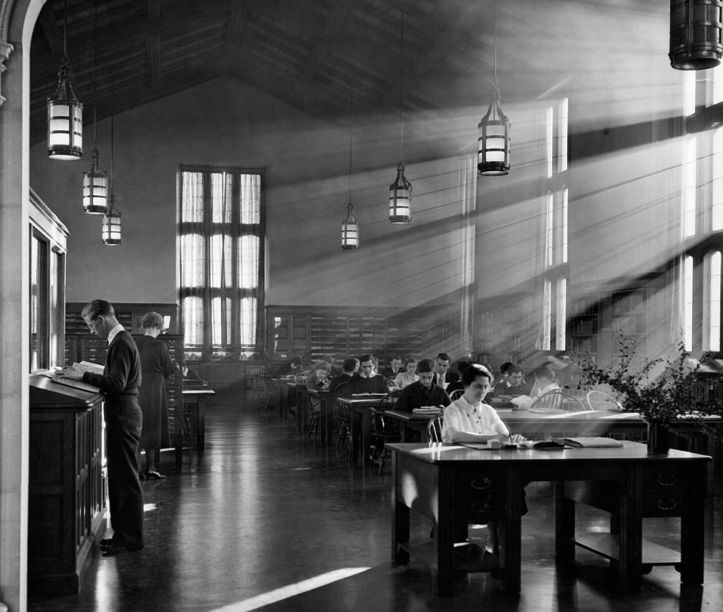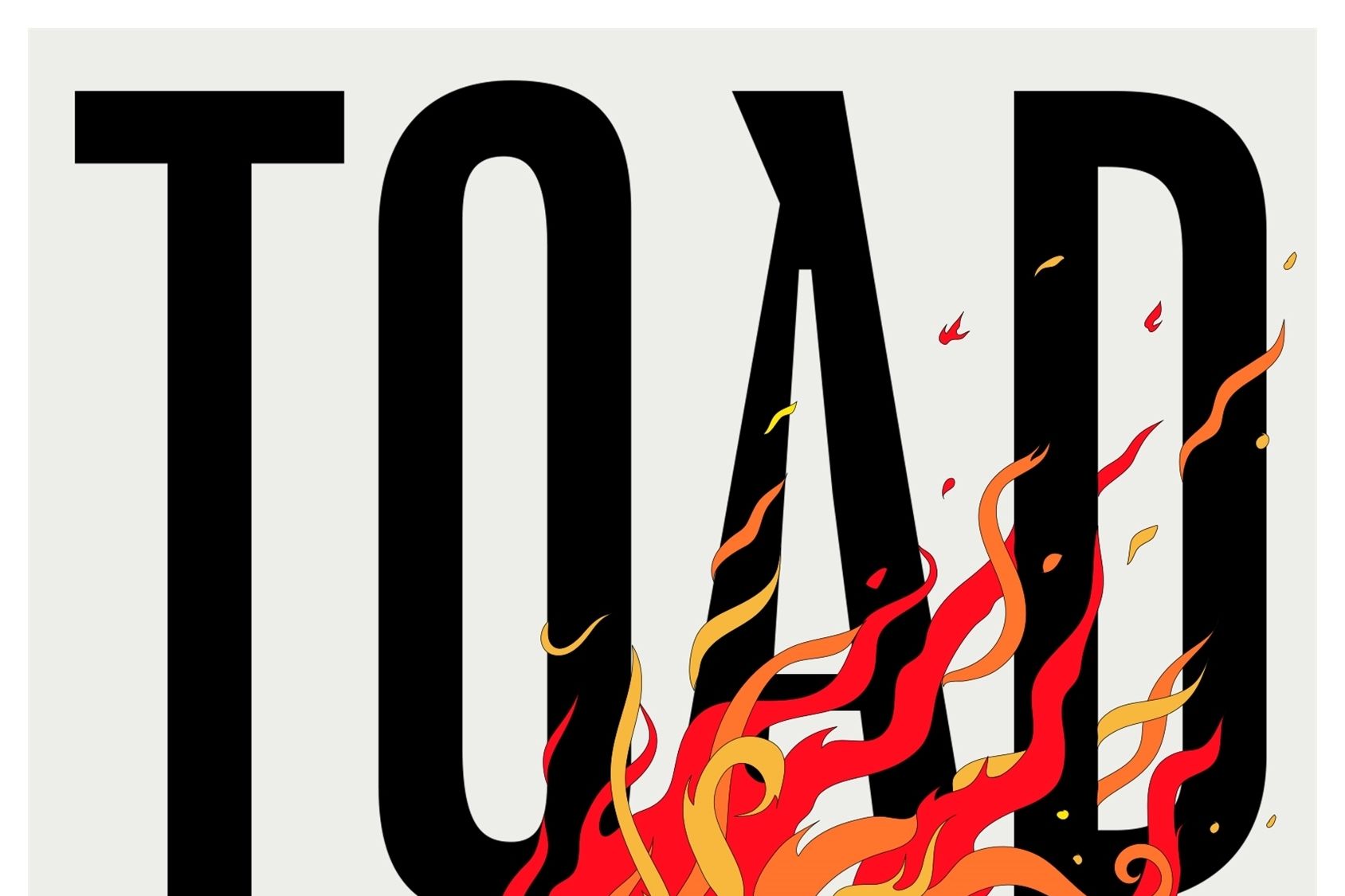Old School

Students in the south reference room of Reed’s Eric V. Hauser Memorial Library, circa 1930.
Image: Reed College Library
TO MANY A PORTLANDER, Reed College stands as the central tent pole in the circus of Portland Weird. From giving the city its first glimpse of the Beats in the 1950s to the more recent fire-breathing bikes of Chunk 666, the leafy Southeast Portland campus produces a parade of freethinkers and malcontents. (To meet a few, See Perfect Party)
But as Reed celebrates its centennial, it’s worth examining this tiny school’s profound influence here. A list of its prominent alums might begin with poets, artists, and environmentalists, but would soon extend to financial executives, political operatives, and the former chief cryptographer for Apple. (And Apple’s founder, Steve Jobs, is one of Reed’s many illustrious dropouts.)
As a Reedie, I long ago accepted that most Portlanders consider my alma mater a hybrid of Haight-Ashbury and Keith Richards’s medicine cabinet. This reputation, sadly, ignores what makes Reed truly countercultural. Reed, you see, is actually a conservative stronghold. In crucial ways, the place is far more rigid than most Bible colleges. And yes, that’s a good thing.
Of course, Reed’s conservativism has nothing to do with tax rates. This microscopic redoubt of braininess—with about 1,300 students, smaller than Grant High School—owes its outsize role in Portland to demanding values that have little to do with its “radical” trappings. In its stubborn devotion to teaching kids “the best which has been thought and said” (as 19th-century poet Matthew Arnold would put it), Reed takes a lonely, possibly doomed stand in an era when most people think of college as glorified job training.
For Reedies, the conservative rebellion begins on day one. Every freshman takes Humanities 110 (“Hum 110”), a yearlong plunge into ancient Greece and Rome and Testaments Old and New. “Our primary goal is to teach students how to make good arguments,” says Anne Delehanty, a professor of French and humanities. “And by questioning whether the Greeks, Romans, and Egyptians were ‘just like us,’ ‘utterly unlike us,’ or something in between, students get a richer understanding of the past.”
This march through antiquity definitely shapes a Reedie’s worldview. “Society must have shared values,” says Chana Cox, a 1964 Reed graduate and recently retired Lewis & Clark College lecturer. “Exposure to the classics is one way to create that kinship.”
Every college pays lip service to “well-rounded” students—often while funding tutoring services for football players. Reed’s requirements leave no choice. Wordsmiths find themselves taking calculus; computer science savants face Euripides. And, yes, everybody must take a year and a half of PE. (Thank you, badminton.) The nation’s only nuclear reactor in undergraduate hands symbolizes the school’s rigorous science programs. To top it off, every senior must write and defend an ambitious research thesis.
Those demands might explain the protean flexibility that allowed Reedies of different eras to found both Tektronix and New Deal Vodka, and why the alumni roster includes both the author of Geek Love and the inventor of Zoloft. Certainly, Reed’s stringent (“onerous,” some have said) graduation requirements set it apart, even in elite academia. Brown, an Ivy League school in Providence, Rhode Island, attracts a similar student body, but since the early 1970s has imposed no multidisciplinary requirements at all. Amherst College boasts of its “open curriculum” (i.e., no requirements). Vassar, Wesleyan, Grinnell, Yale—all similarly malleable.
Reed is even more out of step with the nation as a whole. Business has become the no. 1 major in the country. The for-profit University of Phoenix (also founded by a Reed grad, incredibly) has become the nation’s single biggest college. Even President Obama seems to regard the higher-ed system as a network of trade schools.
In that context, the future can look ominous for Reed’s ideals. “Unfortunately, I think the traditional humanities-based curriculum is doomed,” says Frank Donoghue, an Ohio State professor and author of The Last Professors. “It simply costs too much, and entails a tremendous leap of faith, with highly unpredictable results.”
I hope Donoghue is wrong. At Reed, I read a lot and learned an astonishing amount. And for now, Reed ensures that Portland remains home to a tribe of people who have thought hard about Western civilization’s greatest achievements, and who have grappled with problems far outside of their personal expertise.
In that, Reed’s true contribution to Portland is far more radical than most people suspect.




